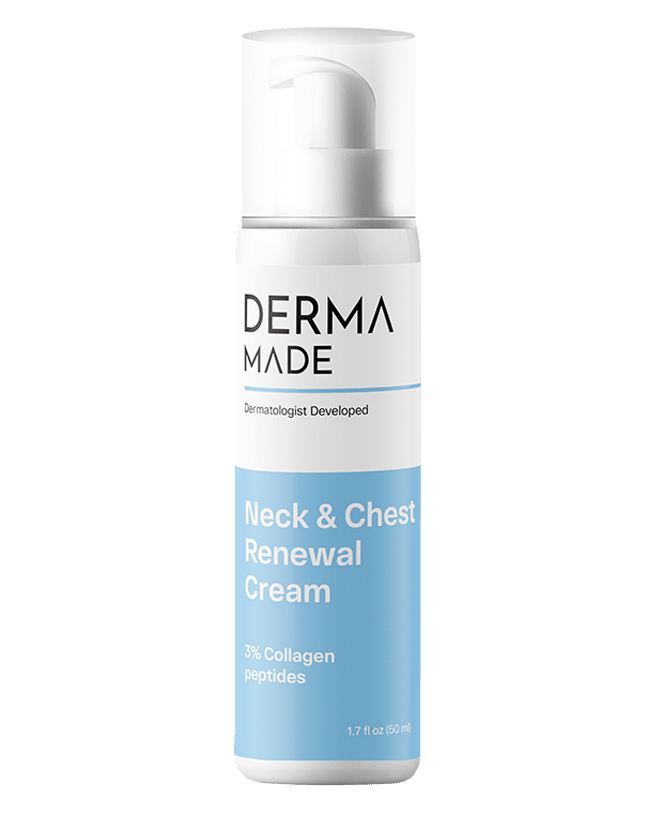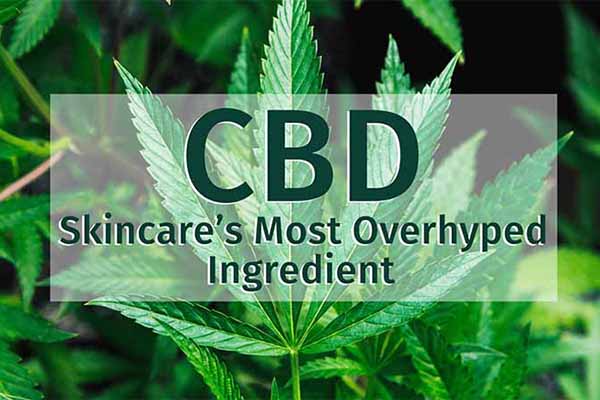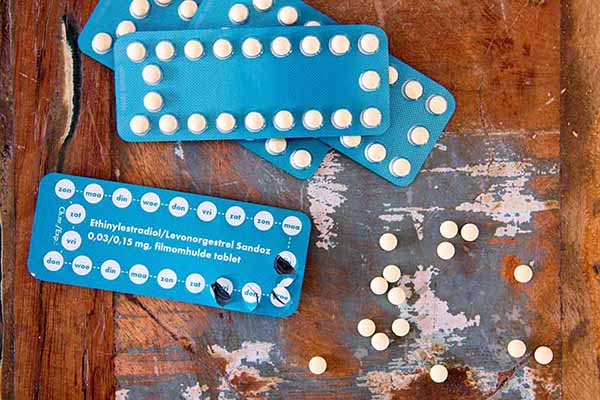In recent years, we’ve been led to believe there’re few physical concerns collagen can’t successfully target. Collagen, specifically collagen supplements, regularly racks up gold stars for supposedly improving skin, strengthening nails, boosting hair growth, supporting healthy joints, and more.
It’s more or less scientifically accepted that collagen applied topically doesn’t do much other than moisturize it. But in what ways do oral collagen supplements up the ante? It certainly sounds like the intuitive solution if applying it topically doesn’t work. Let’s have a look at collagen’s basic functions before we breakdown the answer.
What Is Collagen, Anyway?
Collagen is the tissue that gives the skin shape. Without it, skin would look like saran wrap; thin with virtually no buoyancy to it. Imagine the skin on the back of the hand of a 90-year-old person. Collagen is the most abundant protein found in our bodies and is responsible for much more than just how our skin looks. It’s also necessary for healthy joints. It helps keep cartilage from wearing down and helps thwart bone-on-bone pain. This is otherwise known as shock absorption.
Over time, our skin cells produce less and less collagen. This slow-down starts in our twenties. That’s why as a society, we’re probably a little too obsessed with collagen. From breaking the bank for supplements to selling our souls for the cream of the crop in collagen-boosting skincare products. We’re all chasing the same thing: creating more collagen to look and feel younger.
Where Does Collagen Come From?
The collagen that we eat has traditionally been sourced from animal bones and tissue. Bone broth has shot up in popularity as a healthy way to get the alleged benefits of animal-derived collagen. But people have been making these collagen-rich soups for literally hundreds of years. Whether or not we realized the upsides, they were in there.
These days, supplements tap into different sources with supposed benefits attached to each source. The most popular sources are beef collagen and marine (fish-derived) collagen. But if you’re looking for non-animal products, there are options for you, too. Vegan collagen can be produced by specific yeasts and bacteria to create animal-free collagen.
Collagen Supplements
The vast majority of collagen supplements come in pill, powder, or drinkable form. Powders are designed to be tasteless and able to be added to any drink of your choice. Lending themselves to drinks like smoothies and coffee, they make it incredibly easy to measure out the right amount of collagen every day. Collagen shots are usually around 1-2 ounces and are often mixed with other vitamins that are supposed to enhance collagen’s effects, such as vitamin C. There’s essentially a choice for everyone when it comes to taking collagen. It’s easier than ever to access this supposed super-supplement.
However, what makes or breaks a collagen supplement is the form it takes. It needs to be hydrolyzed collagen, which research suggests is a highly effective bioavailable, which means the body can process it and use it. There’s no point in taking a supplement that your body can’t absorb—if anything, it just makes for some very expensive pee.
A Look at the Research
Luckily, hydrolyzed collagen is intensely researched because of it’s huge potential in so many different parts of the body. A Spanish study that focused on joint issues concluded that long-term use of hydrolyzed collagen was effective at reducing joint pain. The benefits came from its boosting compounds that not only improve joints. This is also crucial for supporting skin health by binding to and retaining water within the skin. This, in turn, supports skin barrier function for happy and healthy skin all round.
This finding is also supported by a 2014 study that looked into, Pure Gold, a particular collagen product’s efficiency. Over 60 days, participants took a 1.7 oz supplement containing 5,000 mg of hydrolyzed collagen every day.
Researchers noted several differences. First, 15% of participants had less visible facial lines and wrinkles than at the start of the study. This may not seem significant at first glance. But the study could likely have better illuminated the product’s efficacy by extending the study duration. I personally would love to know the difference after 90 days of collagen supplementation. Many worthwhile products take time to work.
Where the study is most impressive is how it addresses skin hydration and photoaging (aka premature aging caused by sun exposure). 32% saw an improvement in the appearance of dark spots, while 39% had increased skin hydration. So maybe there is really something to supplementing with collagen?
But Consider This…
It sounds promising. But there is one important detail to consider with this particular study. It was funded by the same company that makes the collagen product in question. This doesn’t entirely discredit the study, but it certainly clouds the waters. All in all, the skin scans don’t lie. You can literally see the difference in collagen density of the skin.
Another promising skin benefit popped up around researching collagen. It actually has quite an effect on eczema-prone skin. A 2017 study examined the effect of collagen tripeptides on eczema. Supplementing collagen was found to reduce the inflammation associated with the itchy condition, providing sufferers with a natural way to manage it instead of resorting to steroid creams which aren’t safe for long-term use on skin. Collagen, on the other hand, is completely safe for long-term use with virtually no harmful side effects.
The Limitations
However, where there is highly limited data is proving it boosts hair and nails. I was able to find only one study from 2017 linking collagen peptides to increased nail growth and strength. But I could not find any evidence whatsoever linking collagen to healthier hair. Nonetheless, collagen users rave about its benefits in both areas. While that does sound excellent, it’s always possible that this could be a placebo effect. A proper skin-tellectual should stay skeptical until more resarch surfaces.
The Verdict on Collagen Supplements
Based on the research, it definitely doesn’t hurt to add more collagen to your diet. But don’t feel like buying the latest collagen supplement that’s being advertised all over social media is do or die for your regimen. Ensure your diet is high in collagen-rich foods, or perhaps make your own animal stock broth. This is in and of itself a great way to get the benefits of this skin-nurturing ingredient without dropping a college tuition on supplements. They can be pricey and aren’t quite a skincare necessity, but they definitely add gusto to any routine!






